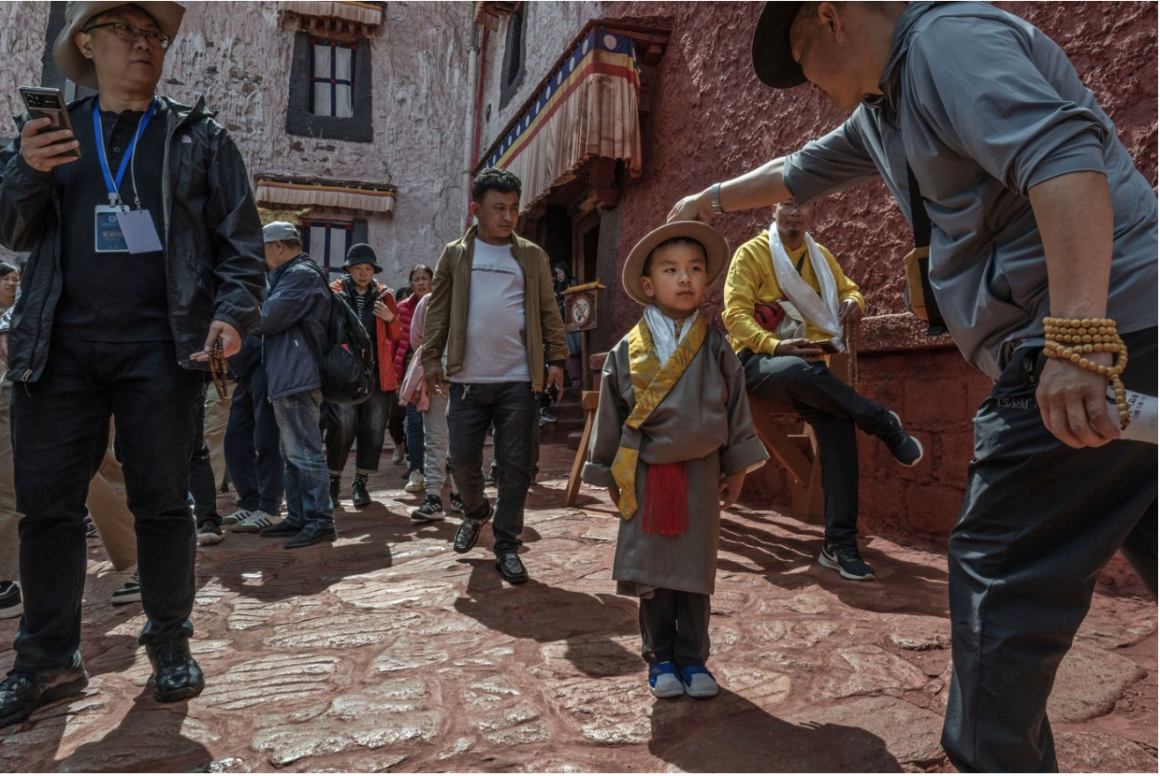U.S. to Sanction Chinese Officials for Forcible Assimilation of Tibetans; State Department says Chinese boarding-school program deprives young Tibetans of their culture
Photo: Kevin Frayer/Getty Images
Original link: https://www.wsj.com/world/china/u-s-to-sanction-chinese-officials-for-forcible-assimilation-of-tibetans-c77aa1bf
The U.S. State Department on Tuesday said it was taking action to punish Chinese officials in response to what it called the forcible assimilation of young Tibetans, broadening its assault on Beijing’s treatment of ethnic minorities. The State Department accused China of the forcible assimilation of more than one million Tibetan children in government-run boarding schools and said it would impose visa restrictions on unnamed Chinese officials. “These coercive policies seek to eliminate Tibet’s distinct linguistic, cultural, and religious traditions among younger generations of Tibetans,” Secretary of State Antony Blinken said.
China rejected the move as “smears” and urged the U.S. to avoid measures that interfere with its sovereignty, according to a spokesman for its embassy in Washington. Centralizing children in boarding schools, the spokesman said, “effectively solves the problem of ethnic minority students’ difficulty in attending school at a distance where the local people live scattered.”
The State Department’s new action echoes U.S. allegations that China mistreats another minority, the mostly Islamic, ethnic Uyghur population . Those allegations have severely strained bilateral relations and added a moral dimension to business activity between the nations. Starting in the final days of the Trump administration, the U.S. began officially describing China’s wholesale detention of Uyghurs as a genocide that is aimed at erasing their ethnic identity.
The Biden administration subsequently banned the import of many items produced in the traditional Uyghur homeland of Xinjiang in western China out of concern they could be made with forced labor, affecting trade in cotton, tomatoes and some high technology goods. Washington has also leveled economic sanctions against government companies that operate in Xinjiang and punished individuals it holds responsible for the detention facilities by banning them from the U.S., a largely symbolic move.
Beijing has derided such allegations, which include extensive Western media reporting based on firsthand accounts and a United Nations Human Rights Office assessment that found signs of abuse in Xinjiang. Beijing has described its work in Xinjiang as vocational education aimed at reducing terrorism and improving the economic prospects of a less-developed part of China.
With Tuesday’s action, the State Department appears to be taking initial steps in the same direction with regards to Tibet, another vast western region of China. The Tibetan plateau, however, has limited international economic or trade ties compared with Xinjiang.
The allegation by the U.S. government of forced assimilation of one million young people adds a powerful new level of international endorsement to long-running allegations from Tibetan support groups in the West and some U.N. officials that education programs run by Chinese authorities are designed to erode ethnic and cultural identity.
In a policy statement in February, three U.N. special rapporteurs for human rights stated that, “Roughly one million Tibetan minority children in China have been separated from their families and placed into Government-run boarding schools, forcing their assimilation into the dominant culture.” The students, the U.N. officials said, are taught only in Mandarin at boarding schools where they are separated from families and risk losing their linguistic links to Tibetan culture.
“Anyone can see this is a problem when you have this many children in boarding schools, whatever the curriculum,” said Lhadon Tethong, an ethnic Tibetan in the Boston area and part of a group of activists called Tibet Action Institute that in reports has alleged families of Tibetan children as young as 4 are coerced by threats from authorities to participate in the programs.
“Uprooting native language is particularly egregious in the case of Tibetan culture considering the role memorization and recitation plays in a rigorous monastic education system,” actor and Tibetan activist Richard Gere told a Congressional-Executive Commission on China hearing in March, which also condemned the education programs. For many years, criticism of Chinese policy in Tibet has been an international human rights cause with wide support, often tracing to admiration for the Buddhist spiritual leader, the Dalai Lama. Beijing regards the 88-year-old Dalai Lama as a politician intent on splitting the nation.
The State Department’s notice on Tuesday didn’t specify which officials might become the target of its visa restrictions. On the eve of International Human Rights Day last December, it hit two officials in Tibet with visa restrictions, accusing the Chinese Communist Party’s top official in Tibet, Wu Yingjie, and the region’s public security chief, Zhang Hongbo, of human rights violations including policies of arbitrary detentions.
Write to James T. Areddy at [email protected]
Credit: By James T. Areddy




Leave a Reply